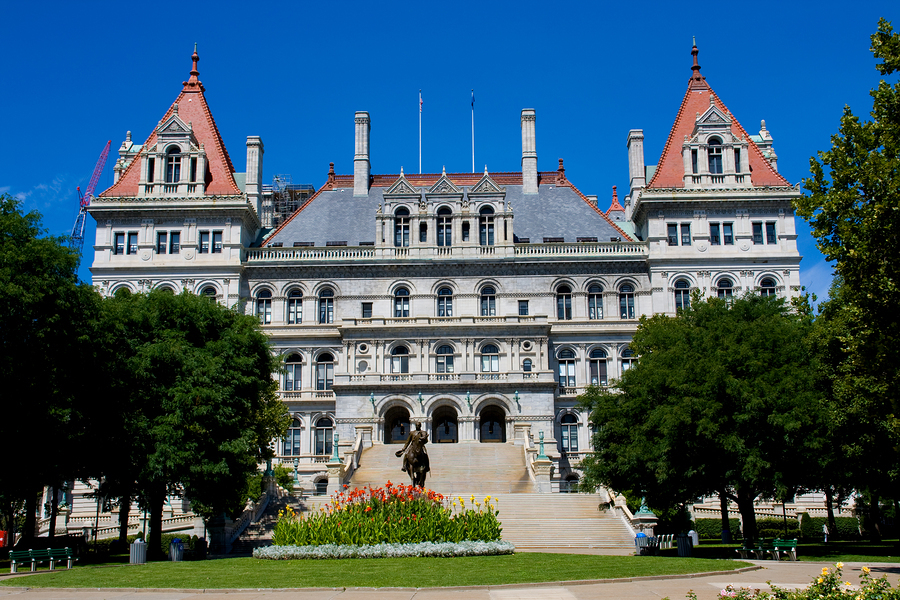Contributor's Note: The NCMM is hitting the road this year, traveling coast to coast to visit the states with the most mid-market companies, including California, Florida, Illinois, Ohio, New York, and Texas. This special series summarizes dozens of discussions with chambers, associations, and business executives to hear about the opportunities, challenges, and growth prospects for mid-sized firms.
The New York middle market is among the largest in the country, employing more than two million people and generating over $222 billion in revenue annually. The state's mid-sized businesses, however, disproportionately face challenges with regards to high taxes, a comparatively negative business climate, and increases in the minimum wage. Despite the obstacles firms face in this sector, prospects for growth remain among the highest in the country.
New York's business climate has been criticized as being hyper-regulated, due in large part to the comparatively overbearing nature of taxes in the state. According to the Tax Foundation, the Empire State suffers from some of the most complex non-neutral taxes with comparatively high rates, the cause for its last place national ranking in the Tax Foundation's 2014 State Business Tax Climate Index. Similarly, Forbes' 2013 Best States For Business and Careers ranked the state 46th for business costs. Mid-market executives who we met with confirmed that an overbearing regulatory environment is a primary cost of conducting business in the state, an unnecessary burden these firms cannot afford to incur.

Despite the high cost environment, the outlook for mid-market firms looks positive. Rankings in such measures as economic climate, growth prospects, and quality of life are some of the highest in the nation. Sectors such as educational and health services, trade, and transportation have all seen tremendous growth in the last year, and are projected to continue this trend into 2014. Mid-market executives in the state were also optimistic regarding their prospects for growth in our conversations with them. However, grappling with, and promoting reform of, a burdensome regulatory environment in New York will be a primary concern for these executives and all mid-market firms in the state going forward.
New York State is currently undergoing the implementation of a minimum wage increase package, raising the state's minimum wage to $9.00 by the end of 2015. Although there has been a significant push to increase the federal minimum wage, the state's minimum wage currently exceeds the federal standard.
Although minimum wage increase affects all businesses, mid-market firms, much like small businesses, are particularly susceptible to the negative effects of increases in operating costs. The minimum wage increase encourages mid-market firms to cut operating expenses by any means possible in an effort to mitigate rising personnel costs. Slowed hiring, weaker growth, and cuts in additional operational costs, such as employee training, are effects of minimum wage legislation middle market executives are coping with. Looking forward, mid-market executives said they hope to keep the state's minimum wage in parallel with federal levels to sustain business growth.
Spending time in New York really illuminated that business owners wear many hats and balance many demands on their time. State-based legislation and regulation has just the same, if not more, impact on a middle market owners' day-to-day duties than many may assume.